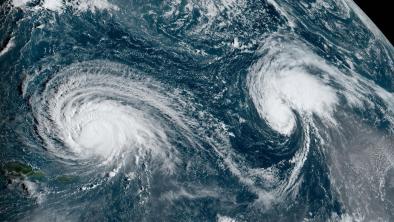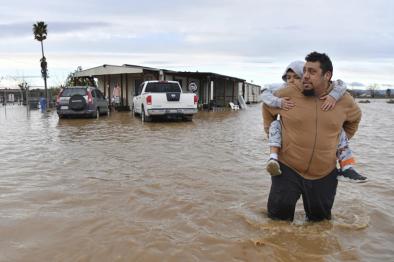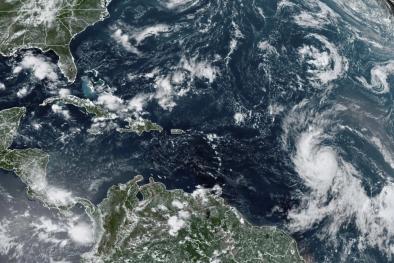Economic losses from hurricanes cannot be nationally offset under unabated warming
Study key findings & significance
-
Hurricane damages can increase due to increasing global temperatures, caused by greenhouse gas emissions from fossil fuels.
-
Computer simulations of regional economic sectors and supply chains in the US now show that the resulting economic losses can at some point not be nationally offset under unabated warming.
-
The hurricane impacts under global warming will thus give the US an economic disadvantage.
Author quotes
“It’s thus clear since long that hurricane damages will become bigger if we continue to heat up our Earth system.”
- Robin Middelanis from the Potsdam Institute for Climate Impact Research (PIK) and Potsdam University
Abstract
Tropical cyclones range among the costliest of all meteorological events worldwide and planetary scale warming provides more energy and moisture to these storms. Modelling the national and global economic repercussions of 2017's Hurricane Harvey, we find a qualitative change in the global economic response in an increasingly warmer world. While the United States were able to balance regional production failures by the original 2017 hurricane, this option becomes less viable under future warming. In our simulations of over 7000 regional economic sectors with more than 1.8 million supply chain connections, the US are not able to offset the losses by use of national efforts with intensifying hurricanes under unabated warming. At a certain warming level other countries have to step in to supply the necessary goods for production, which gives US economic sectors a competitive disadvantage. In the highly localized mining and quarrying sector—which here also comprises the oil and gas production industry—this disadvantage emerges already with the original Hurricane Harvey and intensifies under warming. Eventually, also other regions reach their limit of what they can offset. While we chose the example of a specific hurricane impacting a specific region, the mechanism is likely applicable to other climate-related events in other regions and other sectors. It is thus likely that the regional economic sectors that are best adapted to climate change gain significant advantage over their competitors under future warming.
Related Content





